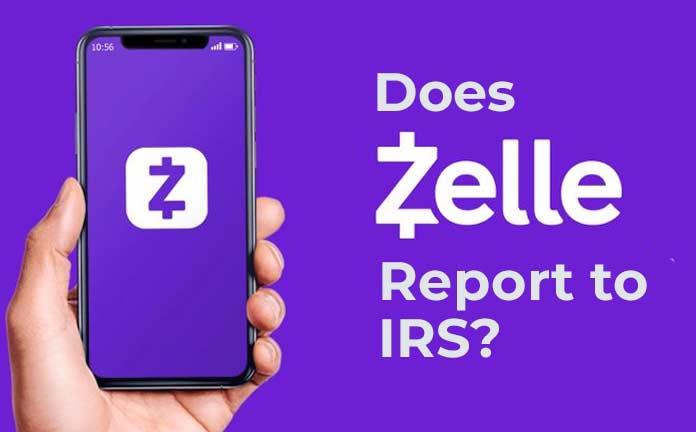Does Zelle Report to IRS?

When it comes to paying for goods and services, Zelle has become a go-to app for many Americans. The peer-to-peer payment platform allows users to transfer money quickly and easily.
However, with the convenience of Zelle, comes potential pitfalls when it comes to filing your taxes. The IRS requires taxable transactions to be reported, and not reporting them can lead to hefty fines and penalties. Therefore, it’s essential to know the common mistakes people make when reporting Zelle transactions to the IRS and how to avoid them.
In this blog post, we’ll discuss everything you need to know to ensure you’re in compliance with the IRS and avoid costly mistakes.
So, grab a cup of coffee, sit back, and let’s jump into it!
Does Zelle Report to IRS?
Yes, Zelle does report certain transactions to the IRS. Any Zelle transaction that involves the transfer of money exceeding $10,000 in a single transaction or multiple transactions within a year will be reported to the IRS by Zelle. In such cases, Zelle will issue a Form 1099-MISC to both the recipient and the sender for tax purposes.
If the transaction is deemed suspicious or potentially fraudulent, Zelle may also report it to the appropriate regulatory authorities. It is up to the recipient and the sender to report any taxable income from Zelle transactions on their tax returns.
5 Common Mistakes people make When Reporting Zelle Transactions to the IRS
People often make some common mistakes that can result in unnecessary complications When it comes to filing a report to the IRS.
Here are some of the most common mistakes people make when reporting Zelle transactions and how to avoid them:
Not reporting Zelle transactions at all
Many people falsely assume that Zelle transactions are exempt from tax reporting requirements, but this is not the case. Any money received through Zelle must be reported on your tax return, just like any other taxable income.
Failing to keep proper records
When you receive money through Zelle, make sure to keep records of the transaction, including the date, amount, and the name of the person who sent the money. This information will be essential when you file your tax return.
Reporting the gross amount instead of net
When you report Zelle transactions on your tax return, make sure to deduct any fees paid to Zelle or your bank. You only need to report the net amount received.
Reporting business transactions as personal
If you use Zelle for business transactions, make sure to report them as such on your tax return. Otherwise, you may trigger an audit by the IRS.
Failing to report all income
Some people only report Zelle transactions above a certain amount, but you must report all income, regardless of the amount.
To avoid these common mistakes, make sure to keep accurate records of all Zelle transactions, report all income on your tax return, and seek the advice of a tax professional if you are unsure about how to report Zelle income.
What are the Advantages of Filing a Zelle Report to the IRS?
Filing a Zelle Report to the IRS has several advantages.
- It helps to establish an accurate record of all financial transactions and ensures that the taxpayer is in compliance with tax regulations.
- It minimizes the possibility of receiving penalties or fines from the IRS for failure to report a financial transaction.
- It serves as proof of payment or receipt of funds which may be useful in future legal proceedings.
- It enhances transparency and accountability in financial transactions and helps to combat money laundering and other fraudulent activities.
Also Read – Does Blockchain Report to IRS?
Overall, filing a Zelle Report to the IRS is a vital step in responsible financial management and ensures that taxpayers are able to meet their legal and ethical responsibilities.
